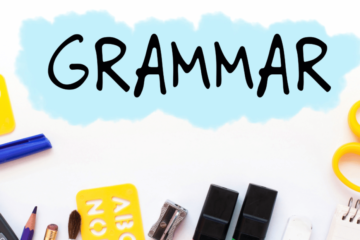Understanding mortgages is essential for navigating the journey to homeownership. Mortgages, also referred to as “hipotecas” in Spanish, are complex financial instruments that significantly impact your financial future. This guide will provide you with a comprehensive overview of mortgages, whether you’re a first-time buyer or exploring refinancing options. If you’re looking for detailed information about what a mortgage entails, you’ve come to the right place.
What Is a Mortgage?
A mortgage is a specific type of loan used to purchase real estate, where the property itself serves as collateral. This means if you fail to meet your loan payments, the lender has the right to reclaim the property through foreclosure.
For prospective homeowners, understanding mortgages is crucial, as they represent a significant financial obligation. If you’re seeking information about mortgages, such as from “https://fotise.com/que-es-una-hipoteca,” this overview will help clarify the fundamentals.
The Importance of Mortgages in Homeownership

Mortgages play a key role in making homeownership accessible by allowing buyers to spread the cost of a property over time, typically between 15 and 30 years. This arrangement makes it feasible for individuals to purchase homes without needing the full amount upfront.
Given their complexity and long-term nature, it’s essential to have a thorough understanding of mortgages. Familiarizing yourself with these concepts, as you would through sources like “https://fotise.com/que-es-una-hipoteca,” will enable you to make well-informed decisions regarding your home financing options.
Why Mortgages Are Essential for Homeownership
Mortgages are pivotal in making homeownership attainable for many individuals. Without the availability of mortgages, accumulating the full amount needed to buy a home outright would be unfeasible for most people. Mortgages allow buyers to manage the cost of purchasing a property by breaking it down into smaller, more manageable payments over 15 to 30 years.
However, the complexity and long-term nature of these loans necessitate a thorough understanding of your options. Choosing the right mortgage requires careful consideration of your financial situation to ensure that it aligns with your long-term goals.
Key Mortgage Terms to Know

Familiarity with these fundamental mortgage terms can simplify the process:
- Principal: The initial loan amount borrowed from the lender.
- Interest Rate: The percentage charged by the lender for borrowing the money, which affects the total cost of the loan.
- Amortization: The method of repaying the loan through regular payments that cover both interest and principal.
- Escrow: A reserve account managed by the lender to handle property taxes and insurance payments on behalf of the borrower.
Understanding these terms helps you navigate the mortgage process more effectively and comprehend your responsibilities as a borrower.
Types of Mortgages
There are various types of mortgages, each catering to different financial needs and homeownership objectives. Here are some common options:
- Fixed-Rate Mortgages: These mortgages maintain a constant interest rate throughout the life of the loan, ensuring stable monthly payments. They are ideal for those who plan to stay in their homes long-term and prefer predictable payment amounts.
- Adjustable-Rate Mortgages (ARMs): ARMs feature interest rates that fluctuate periodically based on market conditions. They often start with lower rates, making them appealing for buyers who anticipate moving or refinancing before the rates adjust. However, there’s a risk of higher payments if rates increase over time.
- Interest-Only Mortgages: For a set period, typically 5 to 10 years, borrowers only pay the interest on the loan, which results in lower initial payments. Once the interest-only period ends, payments increase as the borrower begins to pay off the principal. This option can be useful for those needing lower payments in the short term but requires careful planning for future financial changes.
- Reverse Mortgages: Available to homeowners aged 62 and older, reverse mortgages allow you to convert part of your home equity into cash without monthly payments. The loan is repaid when the homeowner sells the property, moves, or passes away. This can be a valuable tool for seniors looking to enhance their retirement income.
Understanding Different Types of Mortgages: Why Adjustable-Rate Mortgages Matter
Selecting the right mortgage is a critical decision in the home-buying process. Each mortgage type offers unique advantages and potential drawbacks, making it essential to choose one that aligns with your financial situation and long-term plans. Here’s an overview of the main types of mortgages:
Fixed-Rate Mortgages
Fixed-rate mortgages provide the benefit of a consistent interest rate throughout the duration of the loan. This stability means your monthly payments remain the same, which can be advantageous if you plan to live in your home for many years and prefer to avoid payment fluctuations. If you’re considering this mortgage type, further information on fixed-rate mortgages can guide your decision.
Adjustable-Rate Mortgages (ARMs)
Adjustable-rate mortgages come with interest rates that vary periodically according to market trends. These loans usually start with lower rates compared to fixed-rate mortgages, which can be attractive if you intend to relocate or refinance before the rates adjust. To gain a comprehensive understanding of ARMs and their implications, additional details can be found through specialized resources.
Interest-Only Mortgages
Interest-only mortgages allow borrowers to make payments covering only the interest for an initial period, usually between 5 to 10 years. This arrangement results in lower monthly payments during the interest-only phase but can lead to higher payments once the principal repayment period begins. For those exploring this option, in-depth information is available to help assess its suitability for your financial goals.
Reverse Mortgages
Reverse mortgages are tailored for homeowners aged 62 and above, enabling them to convert a portion of their home equity into cash. Unlike traditional mortgages, these do not require monthly payments. Instead, the loan is settled when the homeowner sells the property, moves out, or passes away. If you’re interested in reverse mortgages, detailed explanations and insights can provide clarity on how they operate and their benefits.
How to Qualify for a Mortgage: A Comprehensive Guide
Eligibility Criteria

To qualify for a mortgage, you must meet several key requirements. Lenders typically look for a satisfactory credit score, consistent income, and a manageable debt-to-income ratio. These factors help lenders assess your ability to repay the mortgage. For a detailed breakdown of eligibility requirements, additional resources are available for further reading.
Essential Documentation
When applying for a mortgage, you’ll need to provide various documents to support your application. These include proof of income (such as recent pay stubs and tax returns), bank statements, employment verification, and details about the property you’re purchasing. Ensuring your documentation is accurate and complete can help expedite the approval process. For a detailed checklist of required documents, consult specialized resources.
Understanding Mortgage Approval, Credit Scores, and Costs
Securing a mortgage involves several stages, including approval, underwriting, and understanding associated costs. Here’s a guide to help you navigate these aspects:
Mortgage Application Evaluation
The underwriting process is where lenders scrutinize your financial situation, credit history, and the property’s value to determine if you qualify for a mortgage. This thorough review is essential for making informed lending decisions. For an in-depth look at what underwriting involves, explore more resources.
The Impact of Credit Scores
Credit scores play a pivotal role in the mortgage approval process and influence the interest rate you receive. A higher credit score demonstrates financial responsibility and can improve your chances of securing a favorable mortgage rate. Conversely, a lower credit score might lead to higher interest rates or difficulties in obtaining approval. For strategies on improving your credit score, additional resources offer valuable tips.
By understanding these elements, you can better prepare yourself for the mortgage application process and make informed decisions about your home financing options.
Understanding Mortgage Costs

Down Payments
A down payment is the initial amount of money you contribute towards buying a property, representing a percentage of the total purchase price. While a traditional mortgage often requires a down payment of around 20%, there are several mortgage options that accept lower down payments, which can be especially beneficial for first-time homebuyers. To learn more about these alternatives, check out detailed guides and resources.
Closing Costs
Closing costs encompass various fees associated with completing the purchase of a property. These can include appraisal fees, title insurance, and legal fees. Typically, closing costs amount to between 2% and 5% of the property’s purchase price and are paid at the time of closing the sale. For a comprehensive overview of what to expect, consult specialized resources.
Private Mortgage Insurance (PMI)
When the down payment is less than 20% of the home’s purchase price, private mortgage insurance (PMI) is generally required. PMI safeguards the lender in case of loan default and is usually incorporated into your monthly mortgage payments. For more information on PMI and how it affects your mortgage, refer to detailed financial resources.
Understanding these components can help you better prepare for the financial aspects of buying a home and manage your mortgage costs effectively.
FAQs
1. What is a mortgage?
A mortgage is a loan specifically used to purchase real estate. It is secured by the property itself, meaning if the borrower fails to make payments, the lender has the right to foreclose on the property.
2. What are the main types of mortgages?
The main types of mortgages include:
- Fixed-Rate Mortgages: Have a constant interest rate throughout the loan term.
- Adjustable-Rate Mortgages (ARMs): Feature interest rates that change periodically based on market conditions.
- Interest-Only Mortgages: Allow for interest-only payments for a set period, with principal payments starting later.
- Reverse Mortgages: Available for homeowners aged 62 and older, allowing them to convert home equity into cash without making monthly payments.
3. How do I qualify for a mortgage?
To qualify for a mortgage, you typically need to have a minimum credit score, stable income, and a reasonable debt-to-income ratio. Lenders will also require documentation such as proof of income, bank statements, and information about the property.
4. What are down payments and how much should I expect to pay?
A down payment is an upfront cash payment towards the property purchase, usually a percentage of the total price. While 20% is a common requirement, there are options with lower down payments, particularly for first-time buyers.
5. What are closing costs?
Closing costs are fees incurred during the finalization of a mortgage, including appraisal fees, title insurance, and legal expenses. These typically range from 2% to 5% of the property’s purchase price.
6. What is Private Mortgage Insurance (PMI)?
PMI is insurance required if your down payment is less than 20% of the property’s price. It protects the lender in case you default on the loan and is usually included in your monthly mortgage payments.
Conclusion
Understanding the ins and outs of mortgages is essential for anyone looking to buy a home or refinance an existing loan. Mortgages make homeownership accessible by allowing buyers to spread out the cost over many years, but they come with complex terms and long-term financial commitments. From fixed-rate and adjustable-rate mortgages to understanding down payments and closing costs, each aspect plays a significant role in the home buying process.
By familiarizing yourself with these concepts, you can make informed decisions that align with your financial situation and homeownership goals. Whether you’re a first-time buyer or considering a new mortgage, having a clear understanding of these fundamentals will help you navigate the mortgage process more effectively. For detailed information, always consult trusted financial resources and professionals.




